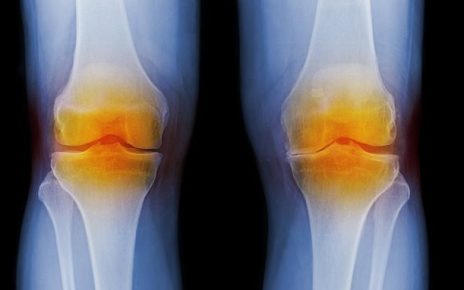In a recent preprint study posted to the medRxiv* preprint server, researchers from the United Kingdom (UK) performed a test-negative case-control study to determine the effectiveness of BNT162b2 (Pfizer) and ChAdOx1 (AstraZeneca) coronavirus disease (COVID-19) vaccines against the Omicron (B.1.1.529) and Delta variants of severe acute respiratory syndrome-associated coronavirus 2 (SARS-CoV-2).
 Study: Effectiveness of COVID-19 vaccines against the Omicron (B.1.1.529) variant of concern. Image Credit: Lightspring/Shutterstock
Study: Effectiveness of COVID-19 vaccines against the Omicron (B.1.1.529) variant of concern. Image Credit: Lightspring/Shutterstock
Background
Soon after the initial cases associated with the Omicron variant were reported on November 26, 2021, in South Africa and Botswana, there was a rapid increase in COVID-19 cases due to the Omicron variant across the world. The numerous mutations in the Omicron variant pose a high risk of infection in the vaccinated population and have raised concerns over the effectiveness of existing COVID-19 vaccines.
The present study was conducted in England from November 27, 2021, to December 6, 2021, using a test-negative case-control design to determine the BNT162b2 or the ChAdOx1 vaccine effectiveness (VE) against symptomatic COVID-19 cases caused by the Delta and the Omicron variants after a two-dose regimen and two weeks after the booster dose of the BNT162b2 vaccine.
The vaccination data was obtained from the National Immunisation Management System (NIMS) and demographic data. Details like the date of vaccination, the name of the vaccine manufacturer, date of birth, residing address, and gender were collected.
The SARS-CoV-2 polymerase chain reaction (PCR) testing was carried out in public health and hospital laboratories (Pillar 1) and community testing (Pillar 2) in the UK. SARS-CoV-2 lateral flow tests (LFT) are freely available to the population for regular home testing. People with symptoms, those tested through community laboratories using the TaqPath assay, and positive cases from sequencing results or spike gene (S-gene) test results within November 27 and December 3, 2021, were included in the study.
The Omicron and the Delta variant cases were identified from the S-gene status in the PCR test as the Omicron has a negative S-gene target and the Delta variant has a positive S-gene target result. This testing data was linked to the NIMS using a unique National Health Service (NHS) number, first name, surname, date of birth, and postal code.
Results
There were 56,439 and 581 eligible cases of Delta and Omicron variants reported during the study period and it was compared to 130,867 eligible test-negative and unvaccinated controls. The positive predictive value for Omicron was 80% when the data was collected. Due to the small number of Omicron cases, the VE estimates for the Omicron variant had wide confidence intervals.
The effectiveness of the BNT162b2 vaccine after two to nine weeks of the primary dose was 88%, which then reduced to 48.5% at 10 to 14 weeks and further reduced to 34-37% 15 weeks post-vaccination. There was no effect against the Omicron variant with the two doses of ChAdOx1 vaccine 15 weeks post-vaccination. Analysis of all time intervals for post-vaccination VE revealed that VE for Omicron was lower than for the Delta variant.
Two weeks after the BNT162b2 booster dose, VE increased to 75.5% in the primary course recipients of the BNT162b2 vaccine compared to 71.4% in the ChAdOx1 primary course recipients. The VE in Delta cases after 25 weeks of BNT162b2 vaccine primary course was 63.5%, and it increased to 92.6% two weeks after BNT162b2 booster dose, whereas VE after 25 weeks of two ChAdOx1 doses was 41.8% which increased to 93.8% after the BNT162b2 booster dose.
Conclusions
The study results show that two-dose courses of BNT162b2 or ChAdOx1 vaccines offer limited or no protection towards symptomatic cases of Omicron compared to Delta cases. However, the BNT162b2 booster dose following the primary two-dose courses of BNT162b2 or ChAdOx1 vaccines increased protection against the Omicron variant and against severe COVID-19. Continued monitoring is necessary to assess the duration of booster dose protection and the VE against the severe Omicron cases.
Previous reports from the UK show that the VE against hospitalization associated with Delta variants was well maintained after the two-dose vaccine regimen. The present study indicates that the VE after the booster dose was higher in the Delta cases compared to Omicron. In this study, it was difficult to determine protection offered by the Pfizer and AstraZeneca vaccines against severe Omicron cases as only a few Omicron cases were reported during the study period, and there was a lag in the development of severe outcomes after infection.
*Important notice
medRxiv publishes preliminary scientific reports that are not peer-reviewed and, therefore, should not be regarded as conclusive, guide clinical practice/health-related behavior, or treated as established information.
-
Andrews, N. et al. (2021) "Effectiveness of COVID-19 vaccines against the Omicron (B.1.1.529) variant of concern". medRxiv. doi: 10.1101/2021.12.14.21267615. https://www.medrxiv.org/content/10.1101/2021.12.14.21267615v1
Posted in: Medical Science News | Medical Research News | Disease/Infection News
Tags: Assay, Coronavirus, Coronavirus Disease COVID-19, Gene, Hospital, Polymerase, Polymerase Chain Reaction, Public Health, Respiratory, SARS, SARS-CoV-2, Severe Acute Respiratory, Severe Acute Respiratory Syndrome, Syndrome, Vaccine

Written by
Susha Cheriyedath
Susha has a Bachelor of Science (B.Sc.) degree in Chemistry and Master of Science (M.Sc) degree in Biochemistry from the University of Calicut, India. She always had a keen interest in medical and health science. As part of her masters degree, she specialized in Biochemistry, with an emphasis on Microbiology, Physiology, Biotechnology, and Nutrition. In her spare time, she loves to cook up a storm in the kitchen with her super-messy baking experiments.
Source: Read Full Article



